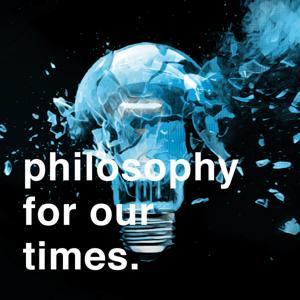Keith Martin-Smith explores the contemporary crisis of masculinity through an Integral lens, challenging reductive narratives and inviting a richer, more multidimensional understanding of what it means to be a man in today’s world. Drawing on decades of men’s work, leadership coaching, and deep spiritual practice, Keith begins by naming a cultural paradox: while nearly everyone can define toxic masculinity, few can describe what healthy masculinity actually looks like.
He traces this confusion to the collapse of traditional masculine scripts—stoicism, sacrifice, emotional coolness—that no longer resonate in a post-MeToo, pluralistic society. At the same time, newer ideals often leave men feeling neutered, ashamed, or adrift, with many retreating from relationships or quietly imploding under the weight of conflicting expectations.
Rather than offering yet another rigid definition, Keith argues for a more integrative, developmental approach. He critiques David Deida’s popular three-stage model of masculinity—macho, nice guy, spiritual superhero—as overly idealized and psychologically naive, particularly in its neglect of trauma, shadow, and real-world complexity. Instead, Keith proposes that we recognize at least four major cultural expressions of masculinity, each with their healthy potentials and toxic distortions:
Power-Based (Red) – Embodied presence, courage, and command; but prone to narcissism, domination, and emotional detachment.
Traditional (Amber) – Duty, stoicism, service, and loyalty; but often repressive, rigid, and emotionally inaccessible.
Modern (Orange) – Autonomy, achievement, innovation, and rational mastery; but risks burnout, detachment, and status addiction.
Pluralistic (Green) – Emotional fluency, empathy, cultural humility, and relational depth; but susceptible to self-erasure, performative empathy, and ideological coercion.
Rather than pitting these stages against each other, Keith calls for an integration of all four, turning masculinity from a fixed identity into a responsive, embodied capacity. A healthy man, he argues, learns to inhabit any of these modes depending on what the moment calls for—whether it’s the fierce protection of the Red warrior, the principled resolve of the Traditionalist, the clarity and execution of the Modernist, or the open-hearted presence of the Pluralist.
He further warns that every level of masculinity can become domineering when it loses connection to service and heart. Whether through brute force, righteous tradition, technocratic elitism, or virtue-based moralism, each mode carries a potential for shadow—especially when weaponized in the name of power or purity.
Keith closes with a spiritual invitation: that no identity—masculine, feminine, cultural, psychological—is ultimately who we are. Lasting transformation arises not from performing better roles, but from anchoring ourselves in something deeper than the constructed self. Through spiritual practice, disciplined shadow work, and developmental integration, men can begin to shed limiting scripts and show up as whole, multidimensional human beings. Not by abandoning the masculine—but by rediscovering it as an evolving, relational, and embodied art.




































